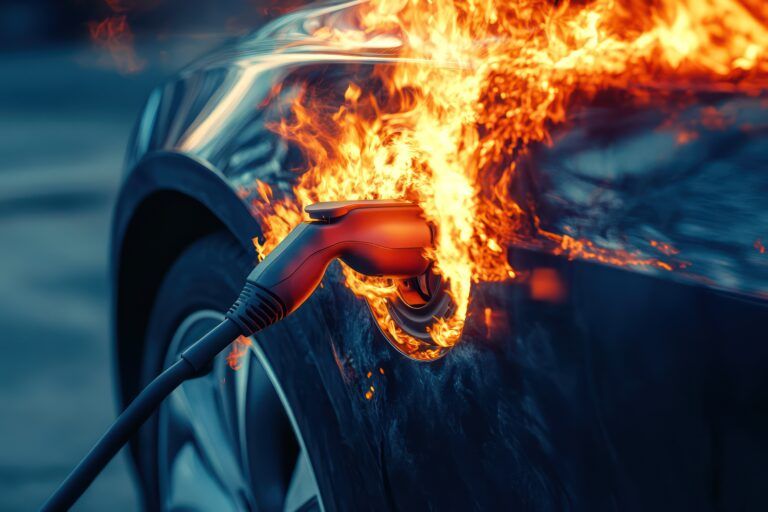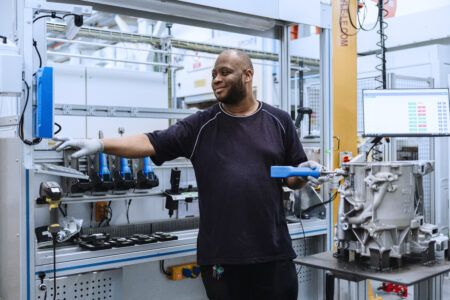Battery technology company 24M Technologies has issued a warning about the increasing risk of EV fires as global EV adoption accelerates.
With EVs projected to reach 250 million worldwide by 2030, up from approximately 40 million today, 24M forecasts a corresponding rise in thermal incidents. While EV fires occur less frequently than those in conventional vehicles, they present greater safety challenges, particularly during charging or when vehicles are parked.
The company notes that even at a conservative rate of one fire per 10,000 EVs, thermal incidents could reach 25,000 annually by decade’s end. Increasing battery energy density, which enables longer driving ranges, has inadvertently raised risks by incorporating more combustible material.
“The industry’s current safety challenges stem from decades-old battery design principles,” said Naoki Ota, President and CEO at 24M Technologies. “While we’ve achieved remarkable progress in cost reduction and energy density, we’re still building upon architectures that have not fundamentally changed in more than 30 years.”
EV fire-related recalls have cost manufacturers approximately $1 billion per vehicle model line. 24M argues that battery safety issues represent the highest severity rating in the automotive industry’s risk evaluation framework, requiring fundamental design changes rather than just manufacturing controls.
The company’s Impervio separator technology aims to prevent thermal runaways before they begin by suppressing dendrite growth within cells. In comparative testing, cells with conventional separators experienced shorts and fires when overcharged, while those with Impervio technology remained stable.
“Impervio offers a proactive solution for the world’s car makers, fundamentally changing how battery safety is approached through revolutionary new battery cell design,” said Ulrik Grape, President of European Operations at 24M Technologies.
The system also enables targeted recalls of specific affected vehicles rather than entire model lines, potentially yielding significant cost savings for manufacturers while maintaining safety standards.
24M is currently working with several industry partners and automotive manufacturers to integrate this technology into next-generation battery designs.





